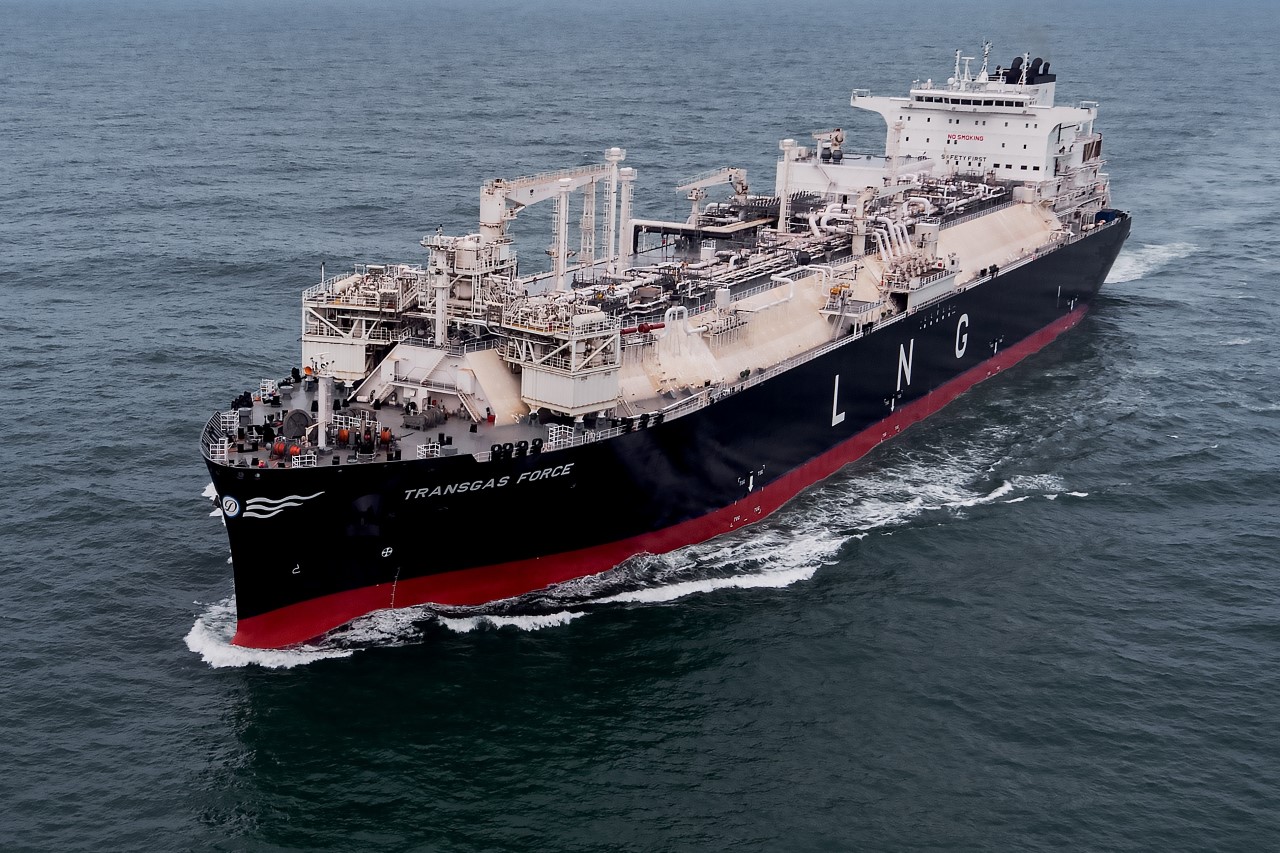German LNG terminal operator Deutsche Energy Terminal is planning to commission its FSRU-based facilities in Stade and Wilhelmshaven in the first quarter of 2024.
Germany’s Federal Ministry for Economic Affairs and Climate Action established Düsseldorf-based DET in January to manage FSRU-based LNG import terminals.
Following the launch of these two facilities in Stade and Wilhelmshaven, DET will operate in total four FSRU-based LNG terminals.
The German government, helped by Uniper, RWE, and TES and Engie chartered in total five FSRUs from Hoegh LNG, Dynagas, and Excelerate Energy.
Uniper and RWE installed Hoegh’s FSRUs Hoegh Esperanza and Hoegh Gannet in Wilhelmshaven and Brunsbüttel. The Wilhelmshaven 1 terminal has a capacity of 6 bcm per year and the Brunsbüttel terminal has a capacity of 3,5-5 bcm per year.
Also, the government sub-chartered the FSRU Transgas Power, owned by Dynagas, to private firm Deutsche Regas to serve the planned LNG import terminal in the port of Mukran.
Second Wilhelmshaven LNG terminal
Excelerate’s FSRU Excelsior is currently located at the Navantia yard in El Ferrol, Spain for a planned technical stop ahead of the start of its job in Wilhelmshaven, Germany.
In October last year, US FSRU owner Excelerate signed a charter deal with Germany for the 2005-built 138,000-cbm FSRU.
The vessel will serve the second FSRU-based facility in Wilhelmshaven.
Belgium-based TES and France’s Engie are DET’s service providers for the Wilhelmshaven 2 terminal and the facility will have a capacity of about 4 bcm per year.
“Depending on the very ambitious construction project (such projects usually take 3-6 years), we expect commissioning in the first quarter of 2024,” a spokesman for DET told LNG Prime on Thursday.
Germany’s transmission system operator OGE recently completed the connection pipeline to the facility, WAL II.
OGE completed the first pipeline, WAL I, for the first FSRU-based terminal in Wilhelmshaven in December last year.
The WAL I and WAL II pipelines will be able to transport 100 terawatt hours (TWh) of gas annually from the end of 2023, according to OGE.
Unlike Hoegh Esperanza which is docked at a jetty, FSRU Excelsior will be moored offshore Wilhelmshaven.
Last year, TES contracted Norway’s ECOnnect Energy to provide the latter’s jettyless IQuay solution for the LNG import terminal.
The solution will connect the FSRU to the onshore terminal, substituting a conventional jetty, and fast-tracking the deployment.
Stade FSRU
In January this year, work started on the new LNG jetty in Stade which will welcome the 174,000-cbm FSRU Transgas Force, owned by Dynagas, in winter 2023/2024.
German port firm Niedersachsen Ports (NPorts) is responsible for planning and implementation of the new jetty.
Also, Dutch firm Gasunie is responsible for the pipeline that will connect the FSRU-based LNG terminal in Stade with the grid.
In July, Stade onshore LNG terminal developer Hanseatic Energy Hub announced the arrival of the FSRU in Germany’s Bremerhaven.
The Lloyd Werft yard in Bremerhaven is preparing the FSRU for its upcoming job in Stade.
The Stade FSRU-based LNG terminal will have a capacity of some 6 bcm per year.
DET’s spokesman said that the company also expects to start commissioning of this LNG terminal in the first quarter of 2024.
Seawater for regasification
FSRUs generally use seawater during summer as the heat source (open loop system) to help with the regasification process but during winter seawater temperatures are too low and this affects their maximum regasification capacity.
This is the case with the two FSRUs in Wilhelmshaven and the one in Stade.
“When the water temperature falls below a certain level, the FSRU goes from the “open loop” to the “combined loop” or even to the “closed loop” (heating is produced by the boilers only) and reduces its regas output,” the spokesman said.
“This is a normal process for almost all FSRUs worldwide, unless they use an additional external heat source, as is the case for our terminal in Brunsbüttel,” he said.
According to DET, during summer and with the use of seawater, Hoegh Esperanza and Transgas Force can regasify up to 750 mmscfd, while during winter and with the closed loop system this capacity would be reduced to 500 mmscfd.
As per Excelsior, this unit can operate at a capacity of 500 mmscfd during summer and this would be reduced to 400 mmscfd during winter in the open loop case, DET said.
Auctions for regas capacity
DET is currently holding auctions for regasification capacities including storage and sendout for the first time.
In two digital auction rounds, market players will be able to acquire utilization rights for the first short-term capacities in 2024 at the Brunsbüttel and Wilhelmshaven 1 terminals.
DET started these auctions via the PRISMA platform on October 16 and has already allocated slots for both of the terminals.
DET’s spokesman said that the firm will publish the cumulated results of the first 5 auctions after the last round next Monday.

